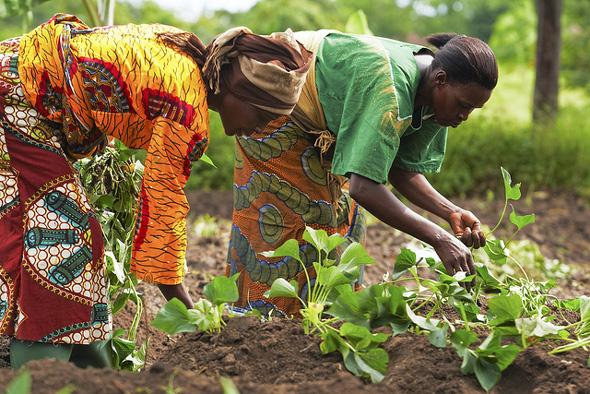Radio is the principal medium for receiving climate information by most farmers with social media being the least, a Kwame Nkrumah University of Science and Technology research has found.
This finding by the Environmental Science department of the University was made known at a climate information services workshop in Kumasi.
It said 74.6 per cent of farmers rely on radio and 2.1 per cent on social media for climate information.
According to the intergovernmental panel on climate change 2018 report, climate change could cause extreme levels of poverty especially in sub-Saharan Africa.
Ghana, however, is most vulnerable to the negative effects of climate change. This is because the livelihood of the majority is dependent on rain-fed agriculture.
The study, conducted in the Upper East region, sought to assess mainstreaming information services for resilient agricultural systems in Ghana.
“Small holder farmers in the Upper East region use climate information for important decisions like crop variety selection, changing crop patterns and harvesting time,” lead researcher, Prof. Philip Antwi-Agyei said.
The study found 60 per cent of smallholder farmers get access to cli mate information.
91 per cent of the information received by the study was found to be on rainfall with 21 per cent of them on temperature.
Inadequate information on seasonal forecast for long-term planning, low accessibility to climate information and high illiteracy levels among farmers were key barriers to uptake of climate information in the study communities.
Lack of awareness of climate information, timeliness of climate forecast, lack of reliability of climate forecast are some of the factors
The researchers also found the information was difficult for the farmers to understand.
Interestingly, majority of the farmers were not ready to bear the cost of receiving climate information.
Researchers recommended a capacity building for agricultural extension officers.
“This is critical in planning and designing efficient training outreach programmes on climate-resilient agriculture.
“Workshop participants and survey respondents reported the need for training on effective interpretation of weather forecast to farmers and developing technical skills for effective extension delivery,” he said.
Latest Stories
-
Iran cannot unilaterally shut Strait of Hormuz – NPA boss
1 minute -
Yango Delivery honours 500 top performing couriers at its Partner Conference
5 minutes -
Prioritise regional trade over distant markets – Prof Gyasi urges African leaders
9 minutes -
Indonesia eyes major renewable energy investments and oil refinery project in Ghana
25 minutes -
Scars of Hooliganism: JoySports premieres documentary on football violence
41 minutes -
Scars of Hooliganism: How hooligans left Mercy Tagoe with a bloody nose
48 minutes -
Coach Chris Baffour opens up on his Rospak SC journey amid contract talks
1 hour -
CIHRM holds 4th AGM with a pledge to play key role in economy
1 hour -
NPP race: I’m not here to test the waters; I’m here for power – Bryan Acheampong
1 hour -
Oklahoma City Thunder beats Indiana Pacers to win first NBA title
2 hours -
Today’s Front pages: Monday, June 23, 2025
2 hours -
World Refugee Day: World Vision Ghana advocates empathy for refugee children
2 hours -
NPA acting CEO assures nation of 2-month fuel reserve amid global uncertainties
3 hours -
Suspected suicide bomber kills 12 in Nigeria’s Borno state
3 hours -
Customs cautions public against importing vehicles without manifest to Ghana
3 hours

